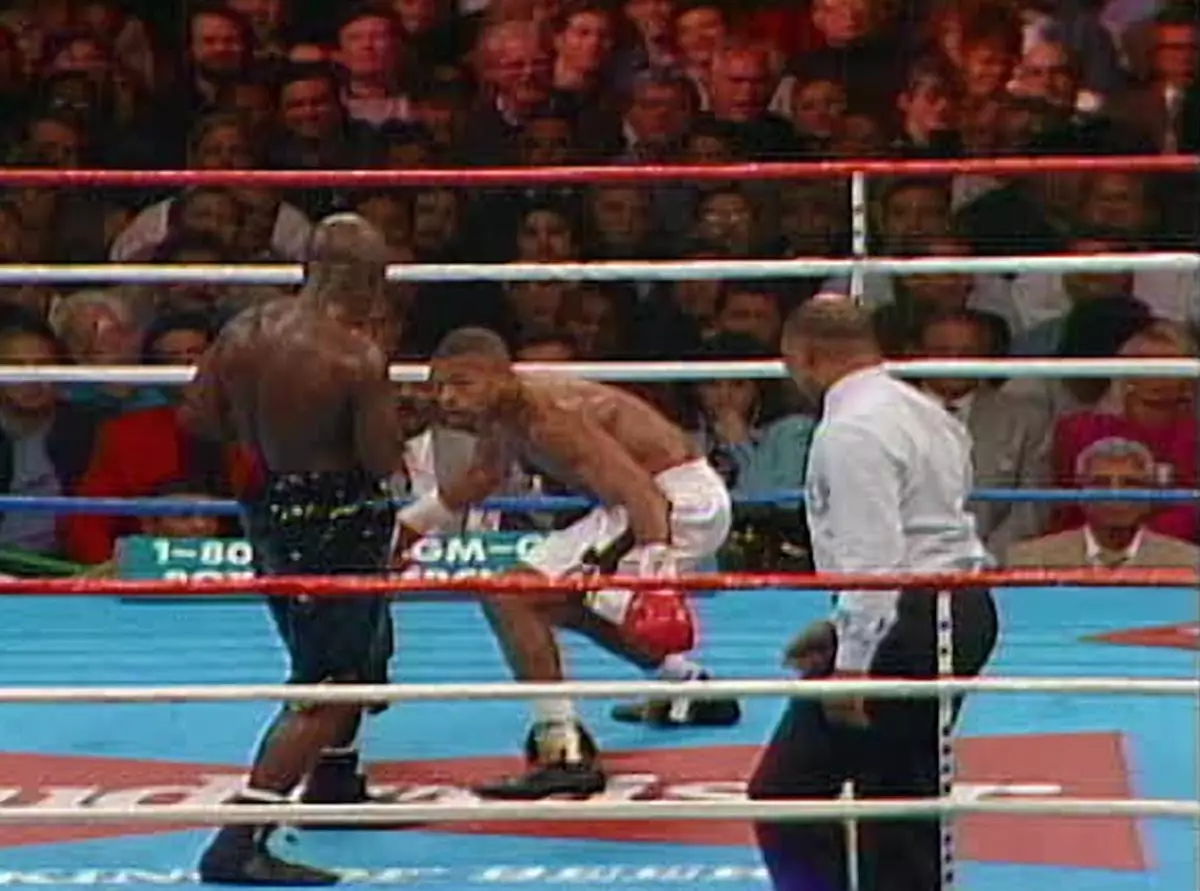The boxing world in 1994 was abuzz with excitement over a much-awaited clash between two unbeaten fighters, Roy Jones Jr. and James Toney. Fans anticipated a contest filled with intensity and skill that would define the careers of both athletes. Both men entered the squared circle at the MGM Grand in Las Vegas with impressive records—Jones stood at 26 wins, 0 losses, and 23 knockouts, while Toney boasted 44 wins, 0 losses, and 29 knockouts, carrying the mantle of the IBF champion. Given their talents, this bout promised to be the start of a great rivalry.
Dubbed “The Uncivil War,” the match began with immediate intensity. Both fighters had been verbally sparring leading up to the event, each vying for the lion’s share of recognition in the boxing world. But from the outset, it was clear that Jones was sharper, exhibiting remarkable speed and strategic intelligence that left Toney bewildered. A flash knockdown scored in the third round set the tone for a one-sided affair that left spectators flabbergasted.
Jones’s hands flew like lightning while Toney grappled with his own sluggishness, a consequence of a brutal weight cut after reportedly coming into training camps far too heavy. In hindsight, it became evident that Toney’s preparation was not conducive to ensuring a competitive match. His inability to adapt significantly impacted the bout’s quality.
The contrast between the two fighters was palpable. While Jones expertly controlled the rhythm of the match, Toney seemed to be searching for footing, struggling to find his range or any meaningful offensive rhythm. Those in attendance might have expected a historic showdown, but instead witnessed a masterclass in boxing finesse, which, while technically brilliant, lacked the drama that typically accompanies legendary fights.
As the rounds progressed, Jones maintained his swagger, a bored grin on his face that conveyed a supreme level of confidence. The fight served as a reminder of how boxing can sometimes yield unexpected outcomes, stripping the sport of its narratives of serendipity and suspense. Instead of a new chapter unfolding in an epic tale of rivalry, fans have instead been left with a postcard of one athlete’s undeniable superiority.
The ramifications of this bout extended far beyond the ring. Toney’s rage at his performance, particularly directed toward himself for inadequate preparation, would follow him throughout the remainder of his career. The temptation to dissect a rematch never faded, yet its realization remained elusive. For Toney, the question of whether a better-prepared athlete could challenge Jones loomed large. Unfortunately, it is a mystery that remains unanswered.
While Toney continued competing in the wake of his defeat, he would never truly recapture the spotlight he once enjoyed. Conversely, Jones continued to ascend in his boxing career, serving as a testament to the significance of conditioning and mental preparedness in sports. He would remain unbeaten in multiple weight classes until an unforeseen disqualification loss occurred in 1997 against Montell Griffin.
Ultimately, the fight between Roy Jones Jr. and James Toney stands as a reminder of the unpredictable nature of sports—a realm where the potential for greatness can clash with the harsh realities of preparation and execution. “The Uncivil War” was more than just a sporting event; it showcased the variability of human performance. Jones emerged victorious that night, claiming his place among the greats, while Toney’s legacy took on an air of melancholia for what could have been.
In sum, the bout proved to be a showcase of one man’s brilliance while simultaneously encapsulating the fragility and unpredictability of athletic competition. The intrigue surrounding the rematch and the questions it engendered may continue to occupy the imagination of boxing aficionados for years to come, solidifying the match’s place in the annals of sports history.

